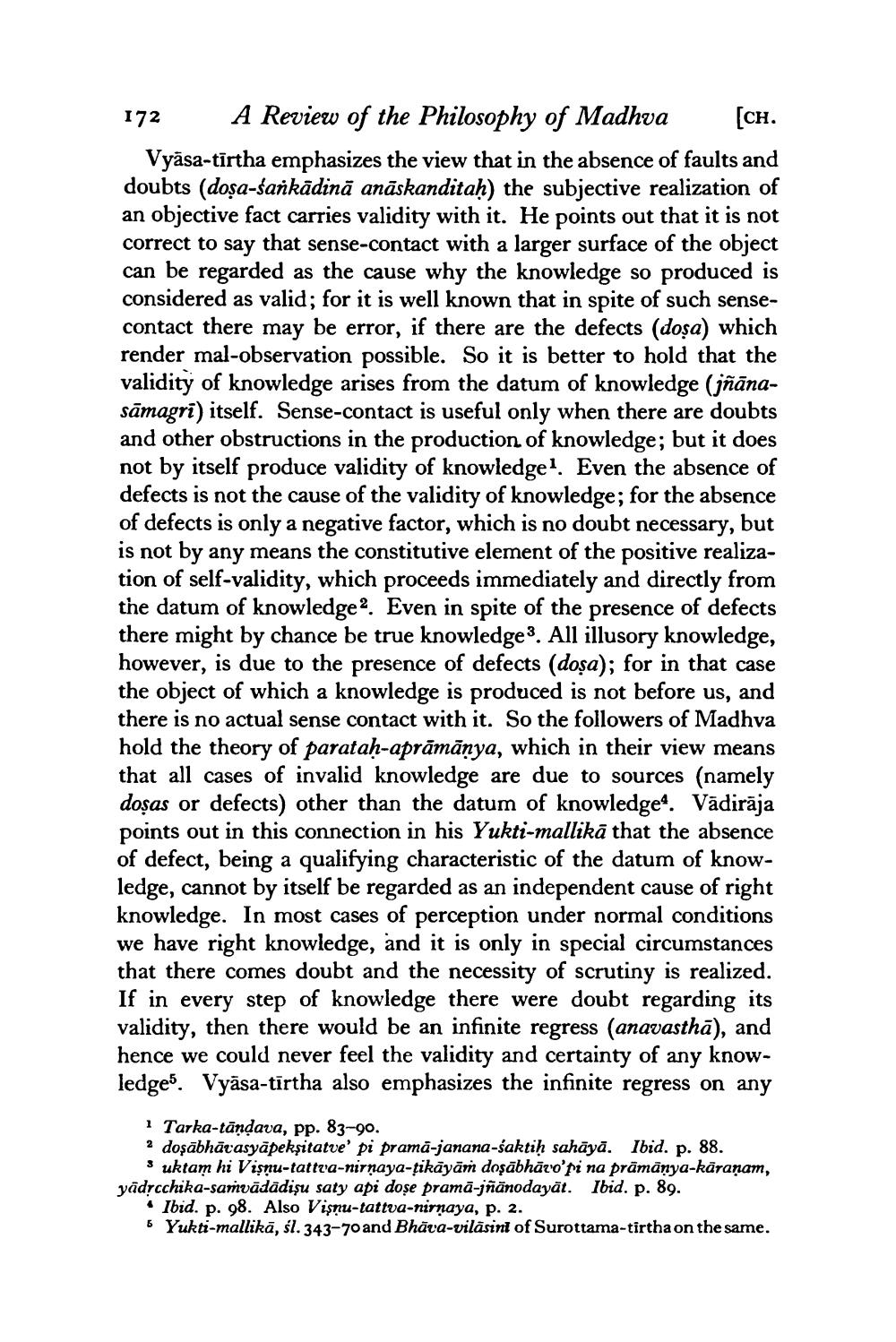________________
172 A Review of the Philosophy of Madhva [CH.
Vyāsa-tīrtha emphasizes the view that in the absence of faults and doubts (dosa-śaňkādinā anāskanditaḥ) the subjective realization of an objective fact carries validity with it. He points out that it is not correct to say that sense-contact with a larger surface of the object can be regarded as the cause why the knowledge so produced is considered as valid; for it is well known that in spite of such sensecontact there may be error, if there are the defects (dosa) which render mal-observation possible. So it is better to hold that the validity of knowledge arises from the datum of knowledge (jñānasāmagri) itself. Sense-contact is useful only when there are doubts and other obstructions in the production of knowledge; but it does not by itself produce validity of knowledgel. Even the absence of defects is not the cause of the validity of knowledge; for the absence of defects is only a negative factor, which is no doubt necessary, but is not by any means the constitutive element of the positive realization of self-validity, which proceeds immediately and directly from the datum of knowledge. Even in spite of the presence of defects there might by chance be true knowledge 3. All illusory knowledge, however, is due to the presence of defects (doșa); for in that case the object of which a knowledge is produced is not before us, and there is no actual sense contact with it. So the followers of Madhva hold the theory of paratah-aprāmānya, which in their view means that all cases of invalid knowledge are due to sources (namely dosas or defects) other than the datum of knowledge4. Vădirāja points out in this connection in his Yukti-mallikā that the absence of defect, being a qualifying characteristic of the datum of knowledge, cannot by itself be regarded as an independent cause of right knowledge. In most cases of perception under normal conditions we have right knowledge, and it is only in special circumstances that there comes doubt and the necessity of scrutiny is realized. If in every step of knowledge there were doubt regarding its validity, then there would be an infinite regress (anavasthā), and hence we could never feel the validity and certainty of any knowledge. Vyāsa-tīrtha also emphasizes the infinite regress on any
i Tarka-tāndava, pp. 83-90. 2 doşābhārasyāpekşitatve' pi pramā-janana-saktiḥ sahāyā. Ibid. p. 88.
suktam hi Vişnu-tattva-nirnaya-ţikāyām doşābhāvo'pi na prāmānya-kāraṇam, yādrcchika-samvādādişu saty api dose pramā-jñānodayāt. Ibid. p. 89.
• Ibid. p. 98. Also Vişnu-tattva-nirnaya, p. 2. 5 Yukti-mallikā, śl. 343-70 and Bhāva-vilasint of Surottama-tirtha on the same.




